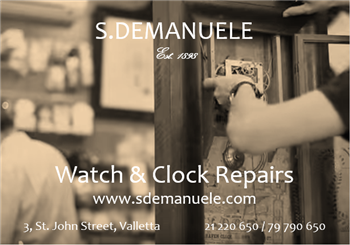Keep Updated
- Home
- Why 10 minutes past 10?
Why 10 minutes past 10?

During the 1920s and ’30s, clocks and watches were almost exclusively set at 8:20. But due to the events that followed in the next two decades, namely the Great Depression and World War I, the general understanding was that the downward pointing hands at 8:20 were undesirable as they resembled a frown while setting the time at 10:10, the hands on the face of a clock would bring to mind a smiling face.
And since feelings play a big part in buying decisions, many clock makers started following the same unwritten rule - setting the hands at 10:10 to make the timepiece look happy.
With the hands in the 10:10 position, perfect visual symmetry is created. The human brain prefers symmetry and orderliness, so the timepieces appear more appealing. Extra features, such as date windows or secondary dials, are visible. At the same time, the perfect centre spot on the clock face (just under the number 12) is the ideal spot for the manufacturer’s logo.



